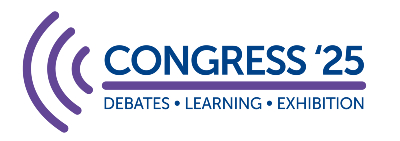Matter for discussion: Redefining learning disability nursing
Submitted by the Learning Disability Nursing Forum
03 Jun 2024, 08:00 - 06 Jun, 17:00
Registered Nurse in Learning Disabilities (RNLD) skills have been highly valued in a wide range of services, including but not limited to autism, prisons, dementia, neuro rehab, epilepsy, acquired brain injury, children's care, mental health, social care, and acute care.
Since the 1980s, there has been a considerable paradigm shift in policy, provision, and care for people with learning disabilities, moving from hospital-based to community-based services (Beebee, 2024). Since then, the NHS has employed significantly fewer RNLDs.
The Royal College of Nursing (RCN, 2016) has been campaigning about RNLD's challenges for almost a decade. In 2021, the College reported a 42% decline since 2009 in the number of RNLDs employed by the NHS in England (RCN, 2021). RCN Wales also called for more RNLDs in a paper it published in 2022 (RCN, 2022). Some Universities have ceased student RNLD programmes due to the declining number of applicants year after year (Council of Deans, 2017).
The title ‘Registered Nurse in Learning Disabilities’ may create barriers for the profession when practising in non-learning disabilities settings. RNLDs report being denied nursing jobs due to misconceptions about their qualifications. An autistic person may refuse to see an RNLD if they do not have a learning disability.
The title of RNLDs has been used since the 1990s. Before then, it changed approximately every 30 years, reflecting the values and practices of the time. Previous titles have used language now considered unacceptable, including ‘registered mental sub-normality nurses’ and ‘registered nurses for mental handicap’. Contemporary thinking regarding learning disability is beginning to experience challenge about whether it is correct to consider a disability in social constructs such as intellect and learning.
Conversely, there are concerns that if RNLDs broaden their sphere of practice, people with learning disabilities may lose access to the only health care professionals trained specifically to meet their needs at the point of registration. People with learning disabilities have significantly more complex needs, with a 20-30-year shorter life-expectancy (LeDeR, 2023).
Supporting individuals with learning disabilities requires unique approaches. The methods used for other client groups may not always be effective for this particular group, and skills specific to RNLDs may not necessarily transfer to others. It is essential to consider whether expanding the definition of RNLDs to include a broader audience would reduce their ability to support those who need them the most.
This matter for discussion calls upon Congress to consider whether Registered Nurses in Learning Disabilities require a refreshed definition of scope and purpose.
The reading list for this debate is available here.
References
Royal College of Nursing (2016) Connect for Change. RCN. London.
Royal College of Nursing (2021) Connecting for Change. RCN. London
Royal College of Nursing (2022) Royal College of Nursing Wales Learning Disability Nursing. RCN. London
Beebee, J. (2024) Does the title “Registered Nurse in Learning Disabilities” still reflect what we do?. Registered nurse in learning disabilities | Blog | Royal College of Nursing (rcn.org.uk)
Kings College London (2023) Learning Disability Mortality Review report 2022. Learning from Lives and Deaths - people with a learning disability and autistic people (LeDeR) - King's College London (kcl.ac.uk)
Council of Deans (2017) report-from-the-learning-disability-roundtable.pdf (councilofdeans.org.uk)
ICC Wales
Coldra Woods
Newport
NP18 1HQ
Page last updated - 27/10/2024






